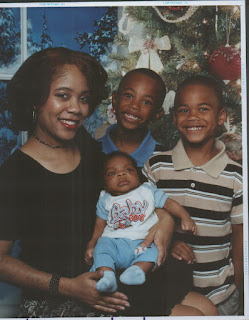No matter how many hair dyes
we use, exercise, or select the “right foods” to eat, our bodies begin to alert us
to how important our lives truly are. So
this is the case with our elderly relatives, they have spent many years learning,
working, teaching, building, fighting, growing, and more to earn the lines we see on old
faces, the curve in tired backs, the gray hairs on wise heads, and more. So when a child acts disrespectfully toward
those who are obviously bigger, smarter, and overall better than they, we, as
parents, must sit these children down and teach them. Some children will learn quickly while others
will need some serious prompting, but either way, children must learn to
respect authority despite how we might personally feel about certain adults.
So I thought of writing this piece, because I know there will be
many family gatherings this holiday season where children will be present. There will be parents of children who
are polite, kind and respectful while there will also be parents of children who
simply don’t know any better and refuse correction. It is my concern that some untrained parents
will take offense when an elderly grandmother, aunt, uncle or someone else will
take the liberty in chastising bratty, little Sam or Sue or rebellious teen Jim, and when they do, the offended parent
will try to excuse his or her son or daughter’s offensive
behaviors. Why take offense?
Parents have just about all year to train children
prior to family events. From funerals to
Christmas, children should be at least somewhat prepared for adults who will
talk to them about interrupting conversations with whines or sassy quips. They should have already been made aware that
loud talking, running thorough someone’s home, and acting fussy is
unacceptable.
Knowledgeable parents have
back-up plans, consequences or alternatives when dealing with children who don’t behave
themselves. Yet, there will be those
parents, unfortunately, who don’t bother to discipline (train) children to: “Sit
and be quiet, wait your turn, don’t take too much food, watch carrying that
plate, don’t run like that around granddad, watch your tone when speaking to
relatives and friends…”
Children are just that, children--not little adults, when we don’t bother to
train them to have self-control, be respectful, and kind to us and others, then we
actually cause them harm and unfortunately witnesses will not appreciate seeing them
or us in the future. Sure, we have relatives in our
circles that haven’t earned anyone’s polite, “Hello” much less respect, but as
we all know, two wrongs don’t make it right.
Let us teach children to be the solution and not the problem. Tips as follows:
One. Advise them to
say things like, "Please" and “Thank you” when they want something done for them or when someone has thought enough to do give them something.
Two. Show them the
correct way to behave when speaking to others and how to act when seated in the
company of others (ie. dinner table, living-room, riding in someone else’s car,
etc.)
Three. Create
consequences when children don't demonstrate appropriate behavior and rewards when they do.
Four. Check your own
emotions and don’t be so quick to defend your child’s misdeeds especially when
you have not witnessed his or her behavior.
Most children may act one way at home and then do some things totally
different elsewhere ie.) tell lies, tamper with things that don’t belong to them,
make false accusations, claim that someone was acting mean while leaving out what they did to receive such a reaction.
Five. When a
situation has come up regarding your child interacting with other children and
adults, don’t embarrass your son or daughter by “showing off” in front of
them as to appear like you have it altogether as a parent ie.) berating,
threatening, or staring at them evily. Rather,
call your child’s attention to the matter by taking him or her out of the room
and away from prying eyes who have nothing better to do than to gossip about
your child.
Lastly, don’t permit yourself to get angry or tearful before
others when it comes to matters regarding your child. You will look unwise and foolish and will give others unnecessary chat about you and your family. Know-it-all busybody types will love to give
you advice (and even prayer and Scriptures) despite having something to do with a child’s emotional
outbursts. Maybe your son or daughter was
only trying to communicate a concern when he or she said, “You shouldn’t smoke
grandma…Don't say bad words. Why do you have that ugly sweater on?
I don’t eat that nasty stuff.”
Sometimes we can control some things, but other things we simply can’t. Forgive yourself, forgive the child and forgive others for they know not what you put up with! Then move on. If they don’t like how you are trying your best to make the visit pleasant consider this, you don’t
have to be around those difficult relatives next year!
Nicholl McGuire is the author of When Mothers Cry and other books.
Nicholl McGuire is the author of When Mothers Cry and other books.







No comments:
Post a Comment